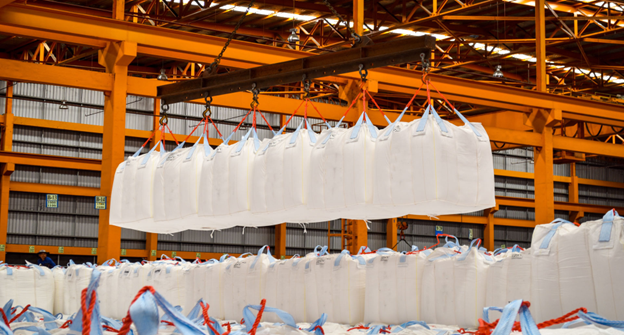FIBCs, widely known as super sacks or jumbo bags are at the core of modern supply chains, and more so in such industries as chemicals, food products, and agricultural materials that are usually dry and flowable. These flexible containers are designed to handle the materials securely and efficiently, while their manufacturing is thoughtfully designed for sustainability.
Industries in flexible packaging solutions have realized the need to make industrial packaging ‘greener’. FIBCs are therefore manufactured using high-quality, woven polypropylene-a durable and recyclable material. These kinds of packaging solutions help businesses avoid single-use packaging and head toward re-usable and long-lasting FIBC solutions.
The sustainability associated with the FIBCs is multilayered. First, FIBCs reduce excessive packaging, which cuts down on material waste. In transporting FIBCs, energy consumption is lower due to their lightweight structure, helping keep carbon emissions low. Moreover, with our FIBCs manufactured from recyclable polypropylene, they prove to be an environmentally friendlier alternative to other forms of traditional packaging produced out of non-recyclable raw materials.
A Closer Look at FIBCs
FIBC are produced in different types for material handling applications. Each FIBC is exclusively designed and fabricated to provide the best availability in durability, safety, and care for environmental protection.
- Type A FIBC Bags: These bags have applications for carrying non-flammable materials only, as they are designed without static protection and are meant for non-hazardous applications only.
- Type B FIBC Bags: These provide only limited static protection. Such bags are adequate to carry flammable powders but should not be carried near flammable gases.
- Type C Conductive Bags: Also called conductive FIBC, these are designed for safe transport of flammable or combustible materials. These are fitted internally and externally with interwoven conductive threads. These threads must be properly connected and earthed.
- Type D Static Dissipative Bags: These provide static protection without grounding and find their applications best in hazardous environments.

Each FIBC is engineered to meet the international standards of safety while handling materials with care and preciseness. Most FIBCs serve all purposes of transportation, from small to large capacities, with load capacities ranging from 500 kg (about 1102.31 lb.) to 2,000 kg (about 4409.24 lb (about 2000 kg).).
When searching for super sacks for sale, choose a supplier that guarantees quality and offers flexible packaging solutions tailored to your needs while promoting sustainability.

